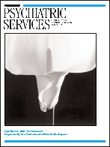The Mind Has Mountains: Reflections on Society and Psychiatry
Paul McHugh, professor of psychiatry emeritus and former director of the department of psychiatry and behavioral sciences at the Johns Hopkins University School of Medicine, is a sharp thinker who is not afraid to tackle controversial topics. In this collection of essays, which appeared in The American Scholar, Commentary , and other journals, Dr. McHugh weighs in on many of the issues that have captured the attention of psychiatry and the public over the past 20 years. Through essays written over time, we read about the progression of the "memory wars" of the 1990s. We hear Dr. McHugh's thoughts on physicians' roles in death and dying, from Jack Kevorkian's moment in the public arena to Terry Schiavo's. We also read about McHugh's opinions on sex reassignment surgery and transgender identities, as well as on deniers of psychiatric illness, such as Thomas Szasz, and the death of psychoanalysis.
Dr. McHugh, of course, has been no mere spectator in how these issues have played out in professional and popular discourse. He spoke loudly against advocates of dissociative identity diagnoses and recovered memories of childhood abuse in the 1990s, and he serves on the board of the False Memory Syndrome Foundation. He took a stand against sex reassignment surgeries at his own institution, and Johns Hopkins University indeed stopped doing such procedures in 1979. He has been on President George W. Bush's Council on Bioethics and was chosen by the U.S. conference of catholic bishops to be on their National Review Board for the elimination of sexual abuse of children by clergy. He is clearly someone who believes in psychiatry's engagement in wider psychosocial issues, an idea that is often associated with psychoanalysts and community psychiatrists, although Dr. McHugh is neither and is fairly scornful of psychoanalysts in this book.
Dr. McHugh is not shy or measured in his opinions, and his bold tone often makes for engaging reading. It is likely that readers' views will resonate with some of those expressed and disagree strongly with others. However, readers will find the views entertaining and cogently argued and want to read on even while having differences with some of McHugh's ideas. His arguments are weakened at times when his convictions cause him to tip almost into an evangelistic stance or resort to stereotyping.
Dr. McHugh argues for a new model of psychiatry with four categories of disorders, which are described roughly as disease, constitution, behavior, and life story. It is interesting to see the evolution of his thinking on this proposed system of classification happen over time through several essays. The four categories are refined throughout the 1990s as more has become known about how the mind and brain and how genes and environment are interdependent and interconnected.
Overall, this is a well-written and though-provoking volume of essays that gives mental health professionals and interested lay readers one view into topics that have been prominent at the interface between psychiatry and society for the past two decades.



